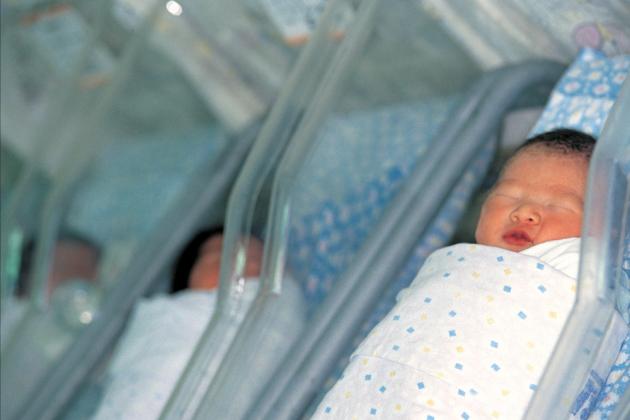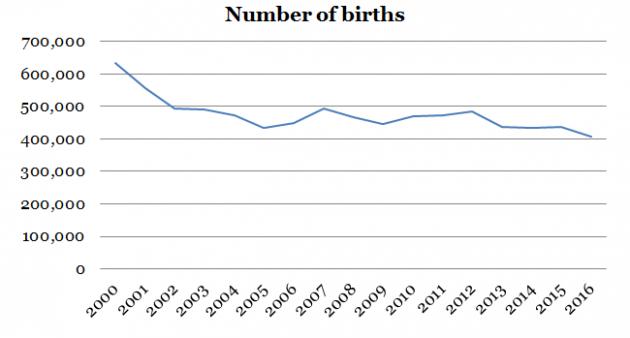The number of births fell to 28,900 in June, marking an all-time low since 2000, Statistics Korea said Wednesday.

This is the first time the number of monthly births hit below 30,000 since the government agency started compiling related data. “Getting married and having children in this country is no easy task,” a commentator remarked.
“The birthrate is declining rapidly this year,” a Statistics Korea official said. “We believe the total fertility rate will decline more sharply this year than in the last.”
The birthrate has fallen in all of the 17 metropolises and provinces, although the government has spent up to 80 trillion won ($70 billion) to address the low birthrate problem over the past decade.
Compared to last year, the number of newborns fell by 12.2 percent. Statistics showed a total of 32,900 newborns in June last year.
Births have been steadily decreasing since 2000, falling from 634,501 babies in 2000 to 406,300 last year, recording a 35.9 percent drop over 16 years.

The data indicates the continuing trend of holding off marriage and babies until later in life. The percentage of women over 35 having children has doubled in the past 10 years to one out of four women, according to the Hankyoreh newspaper.
The prevailing sentiment among the general population has been to “not have kids if you are poor. It’s hell for both parent and child.”
Korea has the lowest fertility rates among OECD countries as of 2015.
The advent of a super-aged society has combined with the reluctance to have children to result in the lowest birthrate and highest death rate at the end of 2016.
The number of deaths in June increased to around 22,000, a 2.8 percent rise from the same month of last year.

